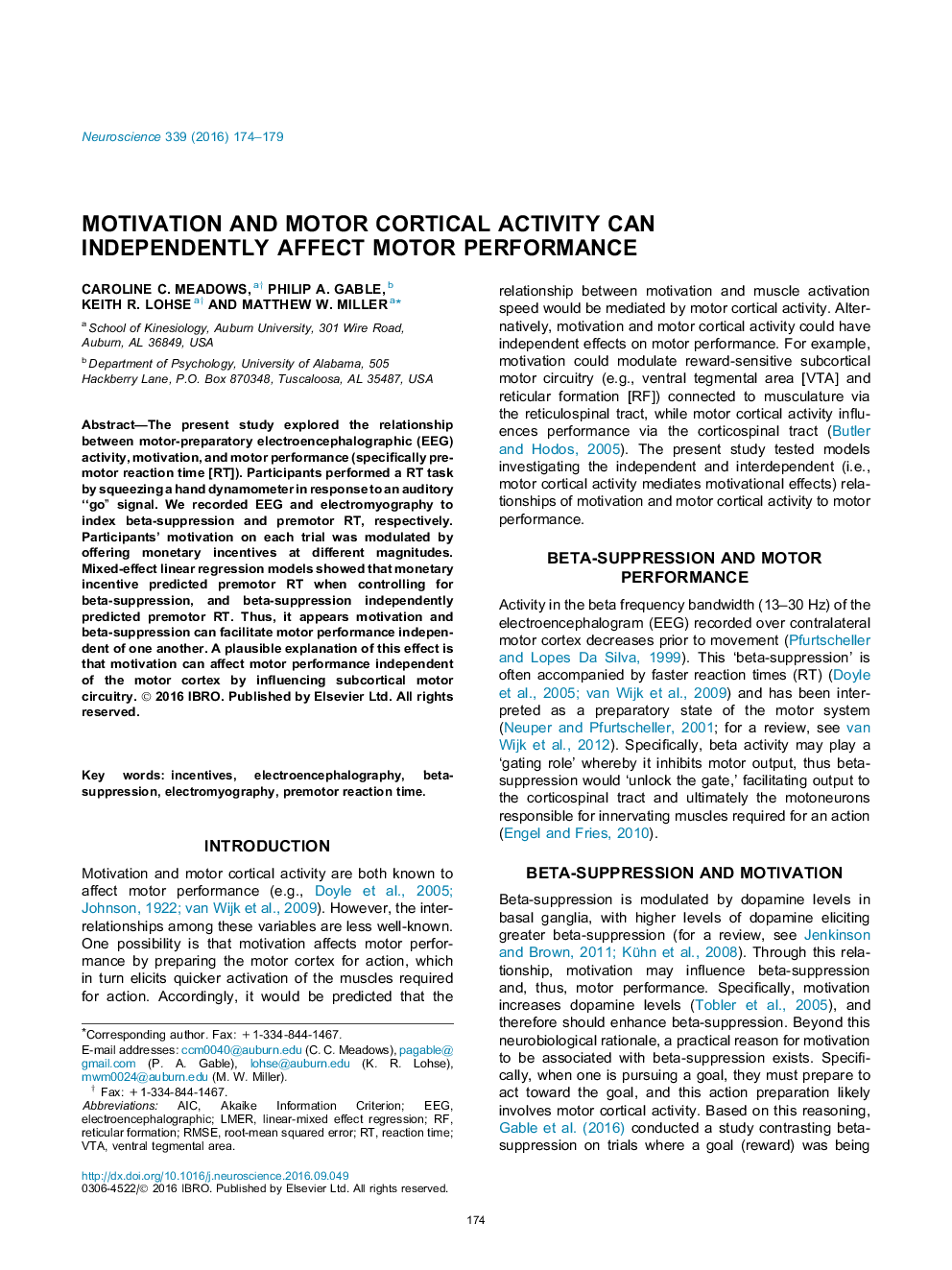| Article ID | Journal | Published Year | Pages | File Type |
|---|---|---|---|---|
| 6270615 | Neuroscience | 2016 | 6 Pages |
â¢We tested the effects of incentives and beta-suppression on reaction time.â¢Incentives and beta-suppression independently improved reaction time.â¢Incentives did not influence beta-suppression.
The present study explored the relationship between motor-preparatory electroencephalographic (EEG) activity, motivation, and motor performance (specifically premotor reaction time [RT]). Participants performed a RT task by squeezing a hand dynamometer in response to an auditory “go” signal. We recorded EEG and electromyography to index beta-suppression and premotor RT, respectively. Participants' motivation on each trial was modulated by offering monetary incentives at different magnitudes. Mixed-effect linear regression models showed that monetary incentive predicted premotor RT when controlling for beta-suppression, and beta-suppression independently predicted premotor RT. Thus, it appears motivation and beta-suppression can facilitate motor performance independent of one another. A plausible explanation of this effect is that motivation can affect motor performance independent of the motor cortex by influencing subcortical motor circuitry.
